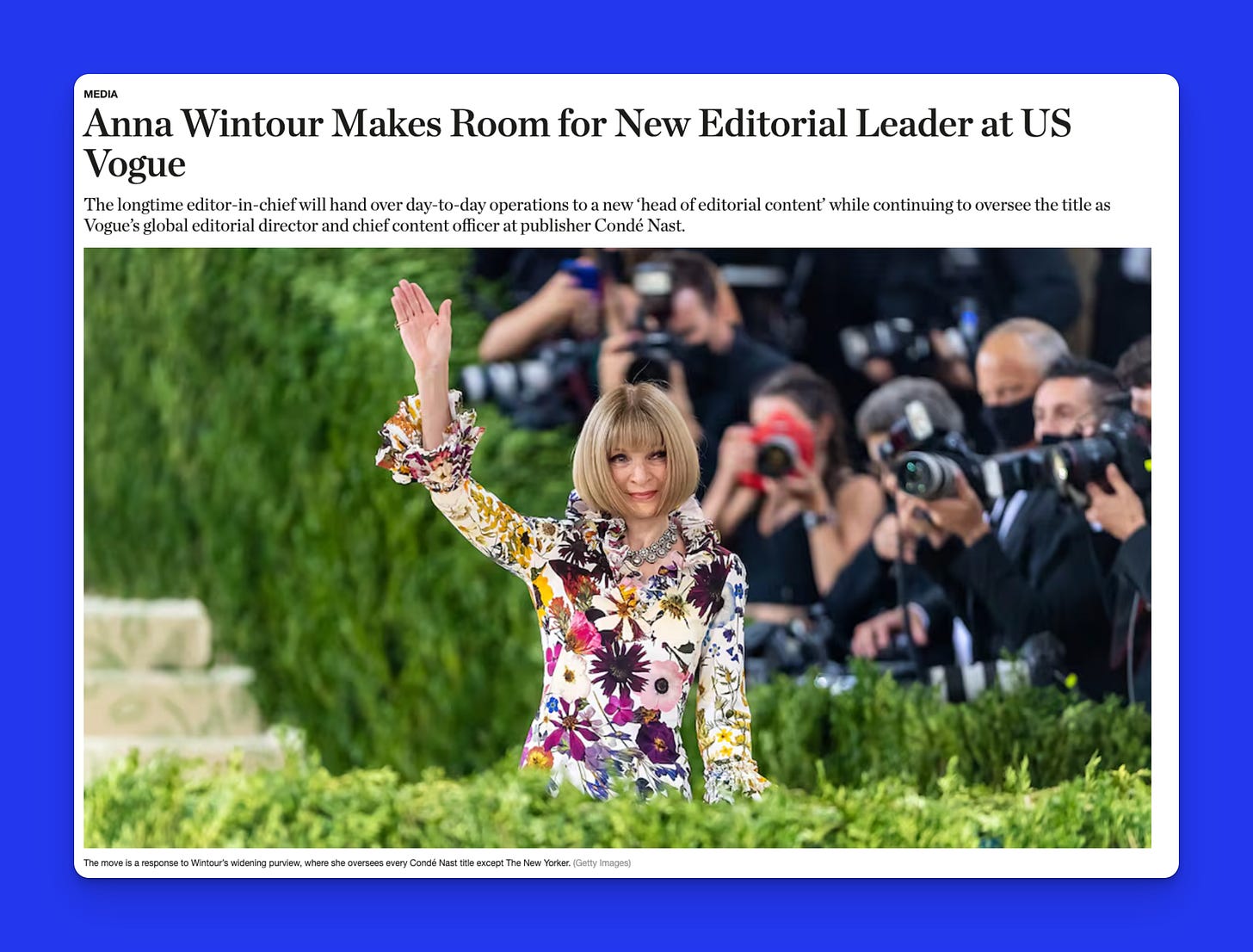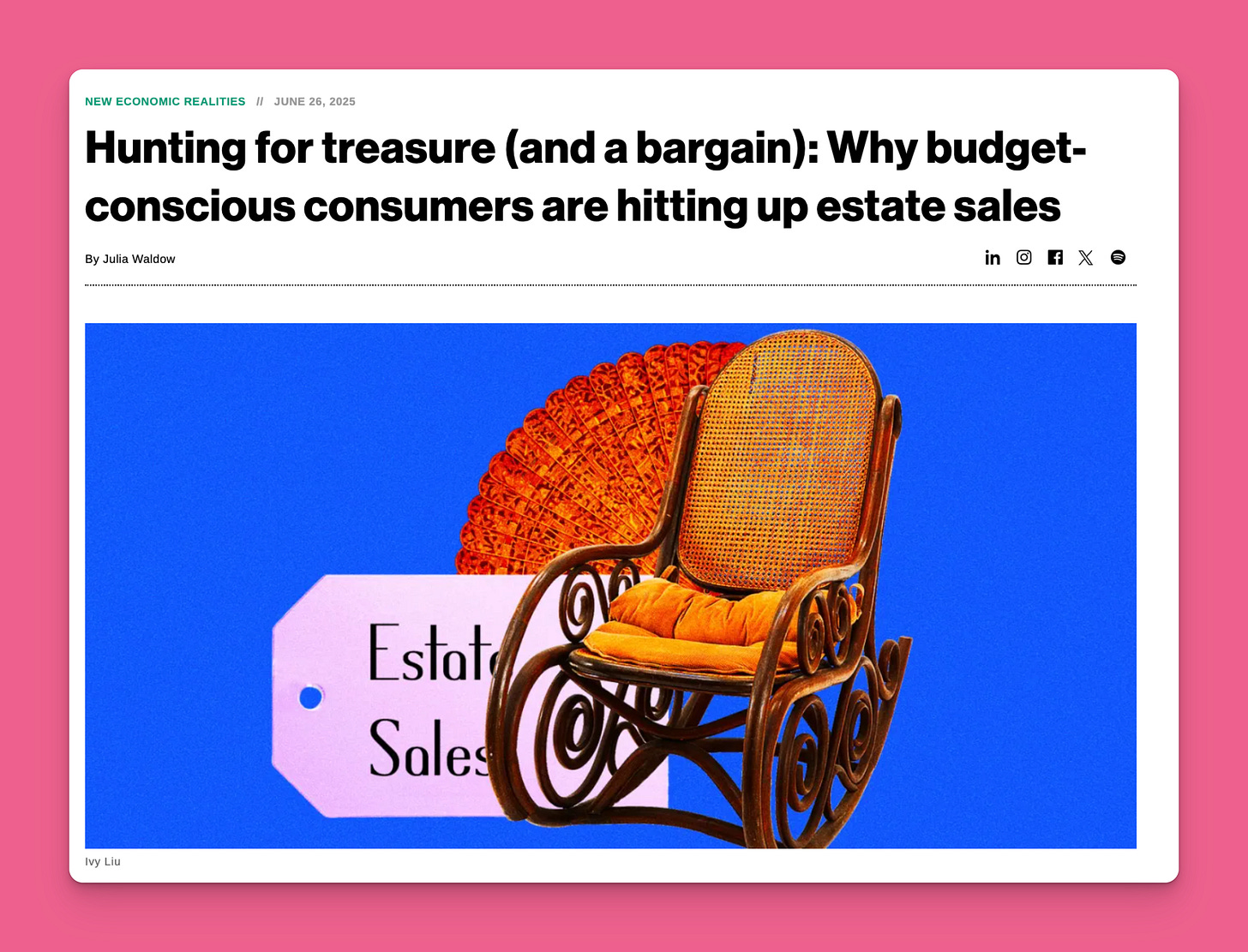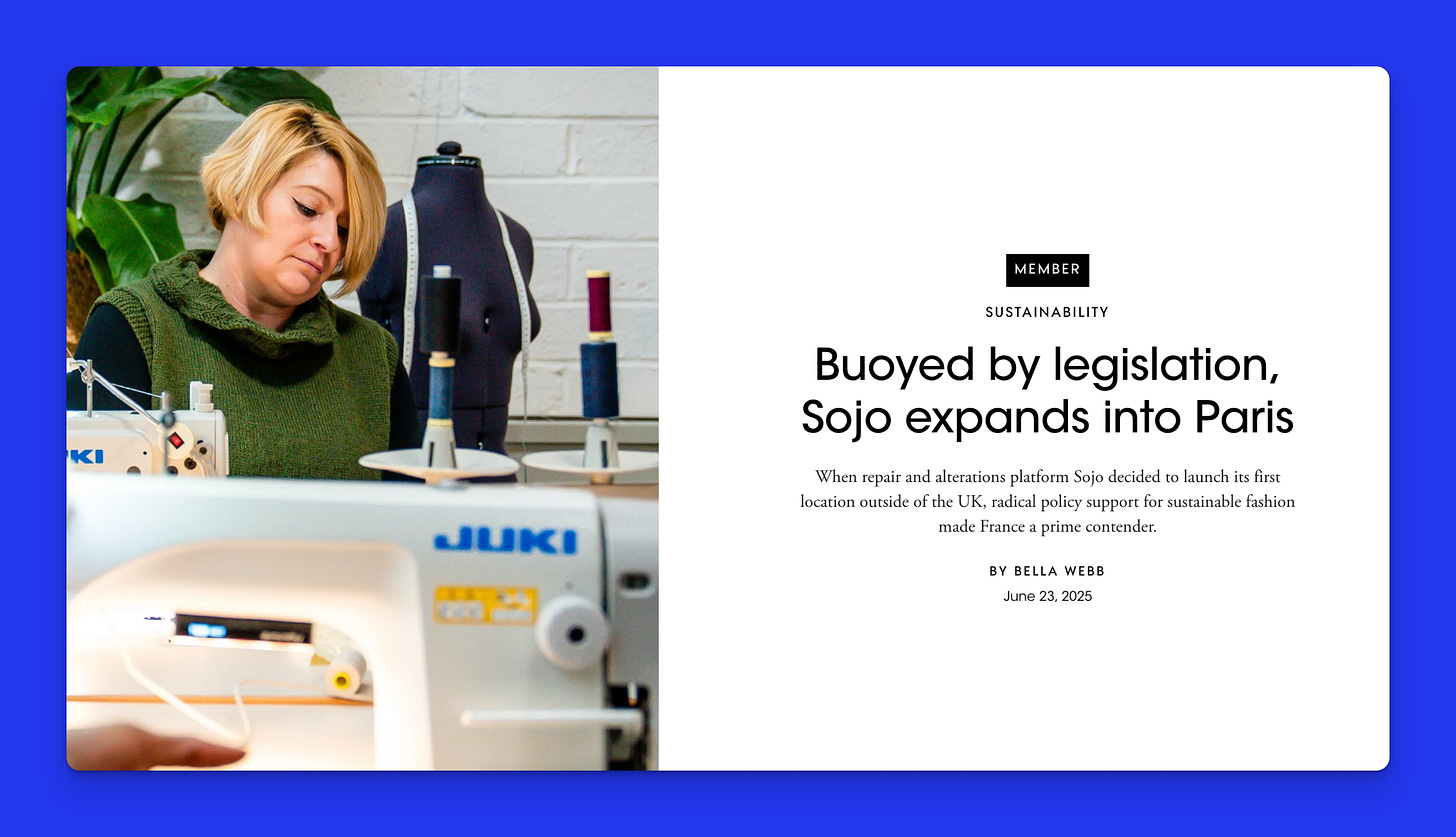Cache Flow #30: Fashion News Roundup
June 21-27: This Week in Fashion x Tech x Resale News
In this weekly series, we feature a roundup of the latest news in fashion x tech x resale.
Cache is your personal resale assistant, designed to make resale frictionless, profitable, and sustainable.
Cache automatically scans your purchase receipts from email to surface what you own.
Using AI-driven insights, Cache helps you understand market value and allows users to list items for sale with a single click.
We’re transforming resale from a hassle to a habit. Join our waitlist to experience the future of resale.
In what probably trumps all other news this week, Anna Wintour is stepping down as Editor-in-Chief at Vogue: Anna Wintour is stepping back from her long-standing role as editor-in-chief of American Vogue by hiring a new “head of editorial content” to handle the magazine’s day-to-day operations, while she continues as Vogue’s global editorial director and Condé Nast’s chief content officer. The shift is part of a broader reorganization across Vogue’s international editions, where traditional editors-in-chief roles are being replaced by regional editorial heads reporting to Wintour. After nearly 37 years leading American Vogue, this move formalizes succession planning for the first time. It also comes amid a challenging media landscape and follows other recent leadership changes at Condé Nast.
Fashion rental services are serving as brand discovery channels: Fashion rental marketplaces have quickly evolved into powerful brand-discovery engines for younger, trend-driven consumers by offering a sustainable, cost-effective way to try emerging designers without commitment. AI-powered subscription services like Bnto curate monthly boxes of pieces from up-and-coming labels, learning individual tastes and allowing members to purchase favorites at discounted rates. Major platforms—Rent the Runway, Nuuly, Armoire—and peer-to-peer apps like Pickle expose subscribers to a wide range of designers, effectively serving as marketing channels that introduce small labels to broader audiences. For brands, these rental partnerships provide valuable first-party data on fit, style preferences, and usage, converting renters into buyers and expanding their reach beyond traditional retail.
Daydream, co-founded by retail veteran Julie Bornstein, has launched in the US as a chat-based, AI-powered shopping agent: The platform lets users discover fashion through natural language queries and image uploads. Daydream curates nearly two million products from over 8,000 brands and routes purchases through partner retailers, earning a commission on each sale. Backed by a $50 million seed round from top investors, Daydream aims to overcome the limits of traditional search by offering personalized, conversational discovery free from advertising or pay-to-play models. Its leadership team leverages large language models and multimodal AI to continuously refine recommendations based on each user’s style preferences and feedback.
H&M Group has entered a multi-year agreement to source large volumes of CIRCULOSE®: Circulose is a 100% textile-waste pulp that can be turned into viscose and lyocell fibers, replacing a significant share of its virgin viscose across all brands. This formalized partnership builds on H&M’s early adoption of the material and aims to scale access to recycled fibers at the volumes needed to reopen its pilot recycling facility. Both companies view the deal as a crucial step towards H&M’s goal of using only recycled or sustainably sourced materials by 2030. By investing in next-generation materials like CIRCULOSE®, H&M is accelerating the transition to a truly circular fashion economy.
Estate sales have surged among younger, budget-conscious shoppers seeking unique, well-made pieces at bargain prices amid economic uncertainty: Digital platforms like CTBids, EBTH, and EstateSales.net have modernized the experience—offering online listings, search tools, and reservation systems—which has driven double-digit growth in sales volume and new user sign-ups. Sustainability and the thrill of uncovering one-of-a-kind items appeal to Gen Z consumers, many of whom document their finds on social media or flip purchases for side-hustle income. Together, cost savings, eco-friendly values, and digital convenience are transforming estate sales into a dynamic channel for discovery and resale.
Sojo, the UK-based repair and alterations startup, is expanding to France: Sojo is opening its first international studio at Westfield Les 4 Temps in Paris this summer, marking a major step for the four-year-old British startup. The expansion is fueled by France’s progressive sustainability laws—early extended-producer-responsibility rules, PFAS bans and a generous repair bonus scheme—that make repair services more affordable and attractive to consumers. Sojo’s mall-based studios aggregate multiple tailors under one fashion-forward roof and leverage discounted repair incentives to overcome price barriers and build ongoing customer engagement. Backed by over £2 million in funding and partnerships with brands like Ganni and Paul Smith, the move into Paris positions Sojo to capitalize on growing demand for circular fashion.
Prada’s brand CEO Gianfranco D’Attis will leave the Italian luxury house at the end of June by mutual agreement: Andrea Guerra, the group’s CEO, will step in as interim brand CEO to oversee the transition. This leadership change comes amid a broader reshuffle in the luxury sector, with peers like Kering and LVMH also announcing executive and creative director moves. The shifts signal an industry-wide effort to refresh strategic direction and respond to evolving consumer preferences.
Have thoughts/opinions/questions on any of the above? Let’s discuss! Join the conversation at the link above.
With love and hot girl energy,
Cache 💚













